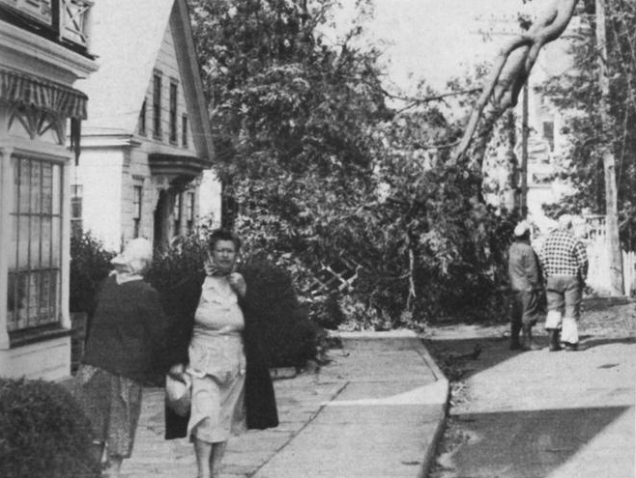Drought, Disease and Pests to Watch for in 2019
Photo courtesy of Cape Cod Times
In 1954, Cape Cod was hit by two hurricanes, Edna and Carol. These storms wiped out most of the mature urban forest throughout the Cape. Today, the regrown forest is now mature, and at risk.
Since 2012 the Cape Cod area has suffered from 20% less rainfall each year, with even more signs of drought being experienced since 2005. We see obvious symptoms with the loss of oak trees from a gall wasp insect infestation since 2012, the return of the gypsy moth in 2015, and now the Lecanium scale infesting our oaks. All of this on top of the Winter Moth caterpillar since the early 2000's.
So why is this such a problem on Cape Cod?
The organic matter content of our Cape soil is less than 3%. The beneficial biology that supports soil and plant health simply just doesn't exist. At less than 3% organic matter, beneficial bacteria is limited and beneficial fungi is nonexistent.
Is there a solution?
Yes, add organic matter to you property, especially turf and beds areas where all the roots share soil. Cape Tree Preservation has 2 programs that specifically address the organic matter content and the beneficial biology that is required for your plants.
The first program is called Never Treat Your Lawn Again: a 3 year program of 2 applications per year. The products applied in this treatment are made up of soil amendments that will keep working for decades.
The second approach is to add the beneficial biology to your landscape in the form of a liquid extract from or worm farm. Worms make the highest aerobic beneficial biological compost diversity of any compost available. We extract this biology from the worm castings and apply it to your soil coupled with the Never Treat Your Lawn Again applications.
In 3 years we will have repotted the plant so to speak by re-charging your soil with organics and biology that will last for decades.
Is there anything else that can be done to save our soil?
We also have a program that conserves water with natural soil polymers made from corn, kelp, fish and humate called H2Go. It can reduce the need for water by up to 50% for 90 days. This is a great way to save money on water bills and help conserve this precious resource in this time of drought.
Besides soil nutrients, what else should we be concerned about in this time of drought?
Lecanium scale on an oak branch.
The newest pest attacking our trees is Lecanium scale, found mostly on oaks. This new pest is due to the stress that drought and insect defoliation has brought upon our Cape Cod forests. Luckily we have a solution, applied in the spring and summer. We can inspect your trees for you free of charge or you can take a look yourself, this pest is easy to spot. Compare your branches to the photo on the left and if you see this pest, do not wait! Sign up now to save your oaks.




